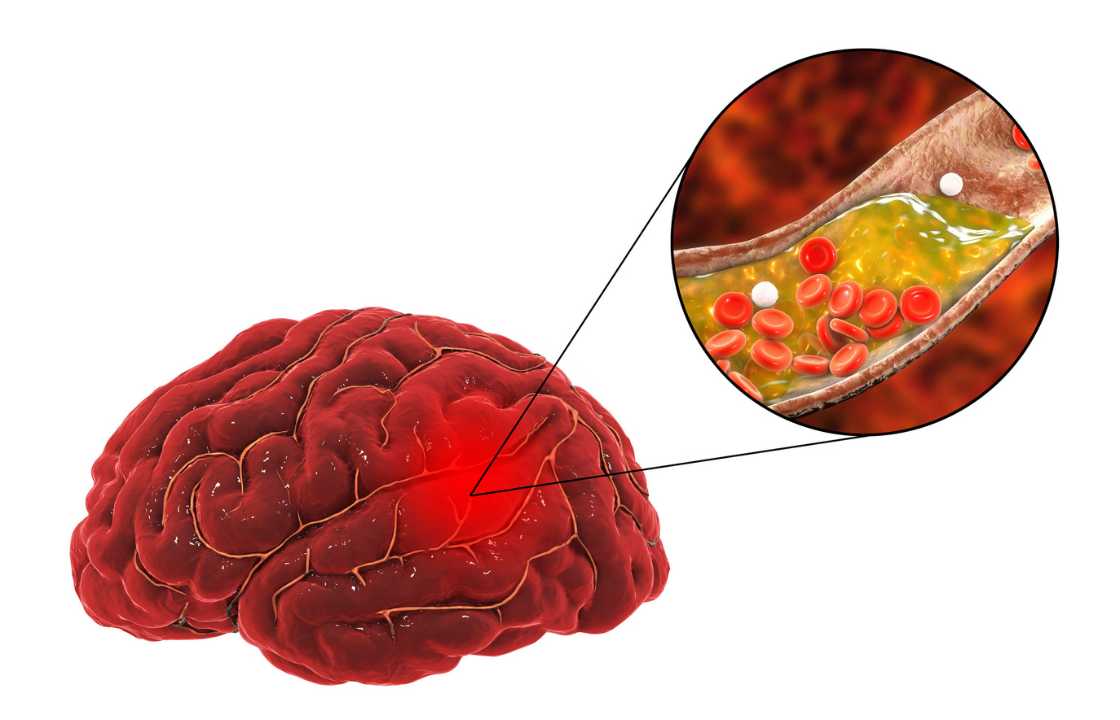‘High blood pressure is commonly associated with heart problems, increasing the risk of a heart attack. However, it is crucial to recognize its impact on brain health as well.
Dr. Steven Greenberg, a professor of neurology at Harvard Medical School, emphasizes that blood pressure is the primary factor contributing to brain injury, frequently manifesting as a stroke. Maintaining low blood pressure can reduce the likelihood of brain injury, aid in preserving brain function, and potentially decelerate the natural decline in cognitive function.
Blood pressure and strokes
High blood pressure, or hypertension, accelerates the progression of atherosclerosis, the accumulation of fatty plaque within artery walls, affecting both the neck and the brain. This obstruction can significantly slow blood flow, and in some cases, a blood clot may form abruptly on top of the plaque, obstructing the supply of oxygen and nutrients to a part of the brain.
Hypertension elevates the risk of stroke through various mechanisms. It increases the likelihood of developing atrial fibrillation, a condition that allows the formation of small clots in the heart, which can travel to the brain and cause a stroke by blocking blood flow.
These strokes typically impact medium-sized and large arteries, resulting in noticeable symptoms like sudden weakness on one side of the body or face, difficulty speaking, or an inability to walk.
Moreover, high blood pressure can harm the smaller arteries in the brain. When blood flow in one of these arteries is significantly reduced or halted, it may lead to a small stroke, often termed a “silent” stroke due to its lack of immediate symptoms. Such strokes frequently occur in multiple areas of the brain.
Cognitive issues frequently arise after a major stroke or multiple small strokes. Individuals may experience difficulties in learning and retaining new information, short-term memory problems, and challenges recalling names, faces, and familiar places.
Dr. Greenberg emphasizes the critical importance of prevention, stating, “By addressing high blood pressure now, you can hopefully avoid large or small strokes and the memory damage that often comes with them.”
Conserving brain function
Lowering high blood pressure not only protects the brain from strokes but also helps in preserving existing brain function, as indicated by a 2019 study published in the journal Circulation.
The study involved 199 adults aged 75 and older with a systolic blood pressure value (the top number in a reading) of 150 mm Hg or higher, categorized as Stage 2 hypertension. Brain scans revealed abnormalities in the brain’s white matter, which contains nerve fibers transmitting signals from one part of the brain to another. White matter changes, indicative of damaged small blood vessels, have been associated with a tendency for thinking and memory issues.
Half of the participants were prescribed medication to lower their systolic pressure to 145 mm Hg, while the others received drugs aiming for a target of 130 mm Hg or lower. After three years, brain scans showed fewer new white matter lesions in individuals with a systolic pressure of 130 or lower than those with a target of 145.
Although cognitive skills naturally decline with age, reducing high blood pressure may slow down this process.
A study published in the May 19, 2020, issue of JAMA examined 12 studies involving over 92,000 individuals with Stage 2 hypertension. All the studies evaluated participants’ cognitive skills, such as concentration, decision-making, and learning new information.
During the follow-up period (averaging about four years), the risk of cognitive impairment was approximately 7% lower among individuals taking blood pressure medications compared to those who did not.
The right number
Current medical guidelines define elevated blood pressure as 120/80 to 129/80 mm Hg, with normal blood pressure considered to be less than 120/80 mm Hg. The question arises: which blood pressure range is most effective in safeguarding your brain?
According to Dr. Greenberg, as definitions of normal, elevated, and high blood pressure have gradually evolved over the years, the current trend in recommendations leans towards the belief that the lower the number, the better. Similar to heart health, the optimal approach to protect your brain from the adverse effects of high blood pressure is to lower elevated numbers and maintain them as close to a normal level as possible.

